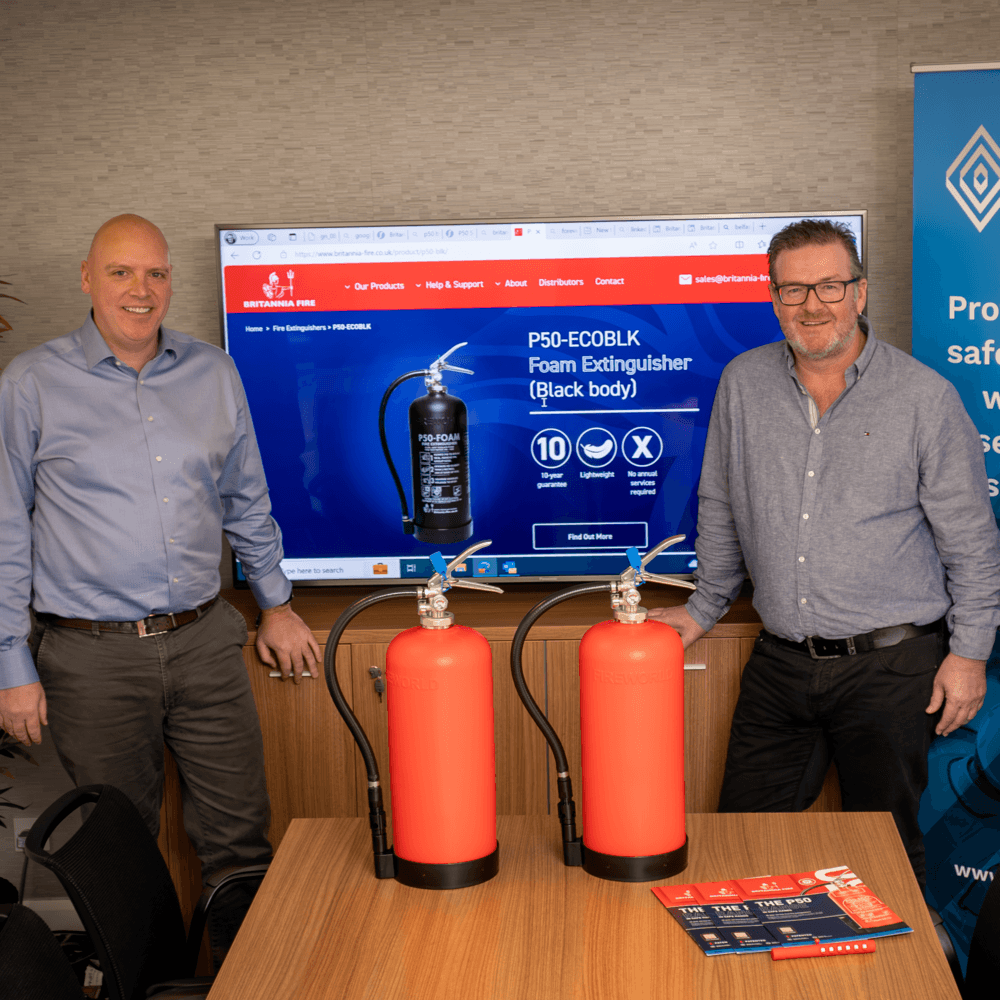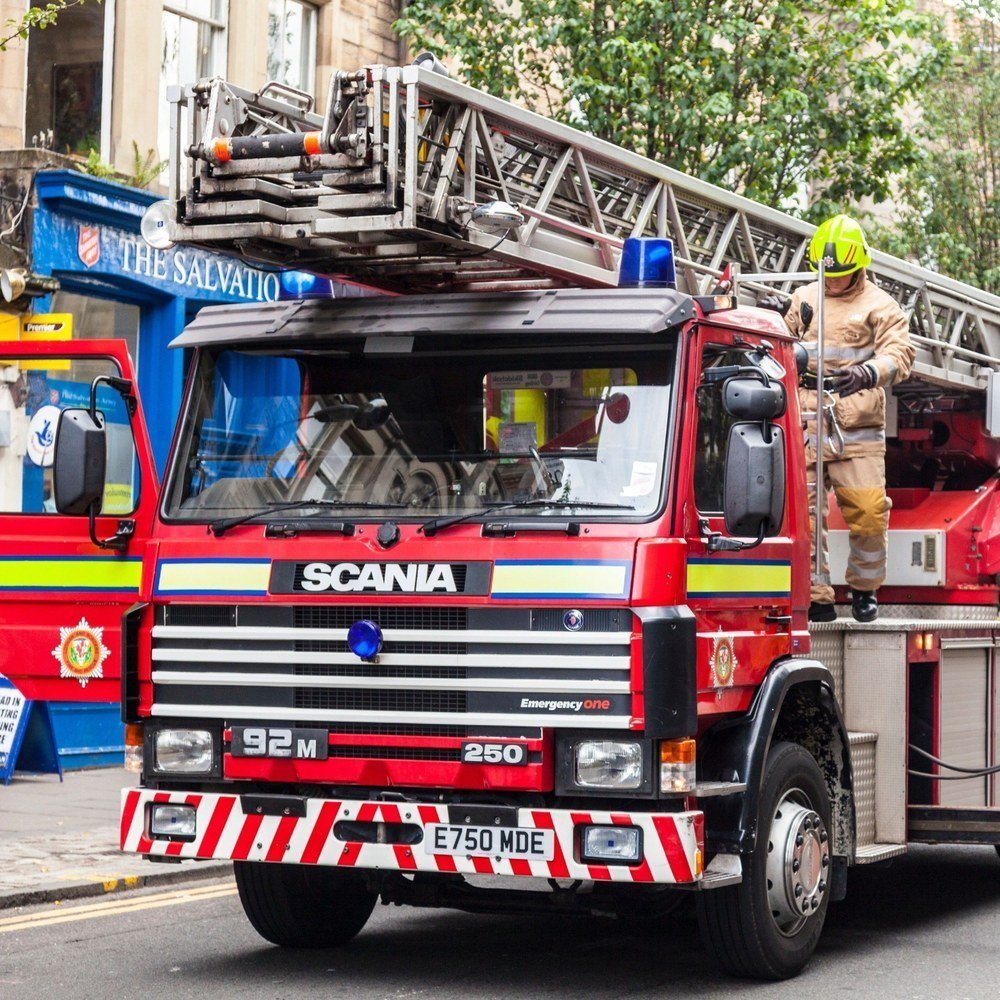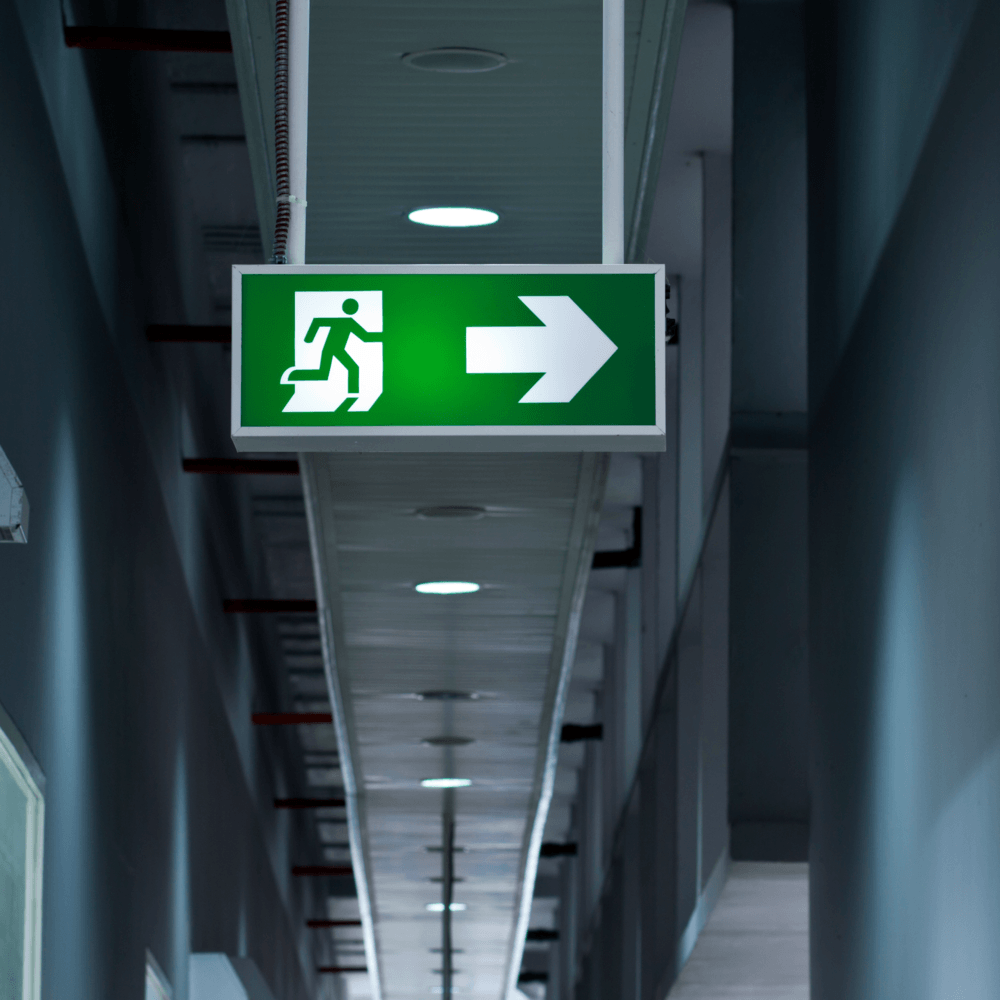Introducing the P50 Fire extinguisher: the biggest innovation in portable fire fighting equipment this decade
Diamond Systems is thrilled to announce the introduction of the P50 fire extinguisher to the Northern Ireland market. Designed and manufactured in Great Britain from concept through to product, the P50 composite fire extinguisher is the biggest innovation in portable firefighting equipment this decade. The P50 fire extinguisher promises to revolutionise the Northern Ireland fire safety landscape, and delivers a sustainable solution to customers throughout the province.
The P50 fire extinguisher was designed and developed by Britannia Fire, a leading manufacturer of fire extinguishers for over 50 years. With its unique 10 year manufacturing and workmanship guarantee, the P50 fire extinguisher offers a solution that enables a simple in-house annual inspection, reducing both lifecycle cost and carbon footprint.
“We are excited to introduce the P50 fire extinguisher to the Northern Ireland market,” said Angela Bennett, Joint Managing Director of family owned and operated Diamond Systems:
“We wanted to partner with a manufacturer who strived to deliver highly sustainable products for our customers – saving lives and the environment. We believe that the P50 fire extinguisher range will set a new standard in the Northern Ireland market and we are delighted to have been selected as the distributor for this region.”
Key features of the P50 fire extinguisher include:
– No annual service required by third party engineers
– Self maintained annual inspection
– 20 year manufacturers operational corrosion guarantee
– 10 year manufacturing faults and workmanship guarantee
– Environmentally friendly PFAS Free Foam
– Recyclable
– Accredited to the highest standards
– Manufactured using 50% electricity from Solar Panels
Andy Spence, Joint Managing Director of Britannia Fire said,
“I am really excited about the future of Northen Ireland, now that we have a credible, reliable, professional partner, as we do with Diamond Systems. The ability to offer our services and vast cost savings to the likes of the NHS, Universities and local government organisations, means it is a win, win situation as we are also helping the environment with Eco friendly products”.
For more information about the P50 product range, visit https://www.britannia-fire.co.uk/p50/ and contact Diamond Systems for all Northern Ireland enquiries at sales@diamondsystems.co.uk or 02890 207 207.












